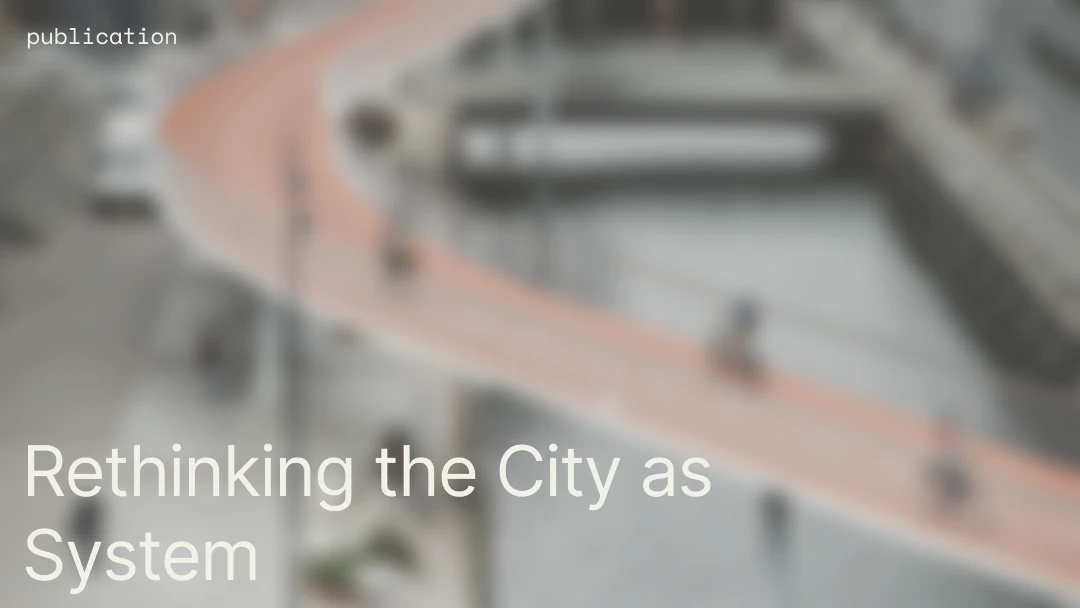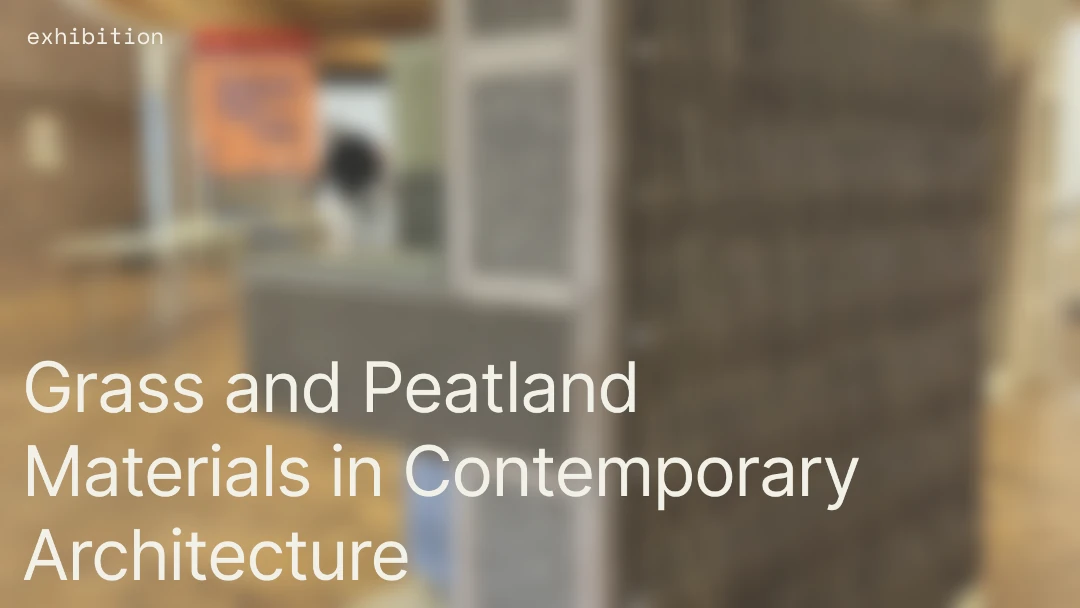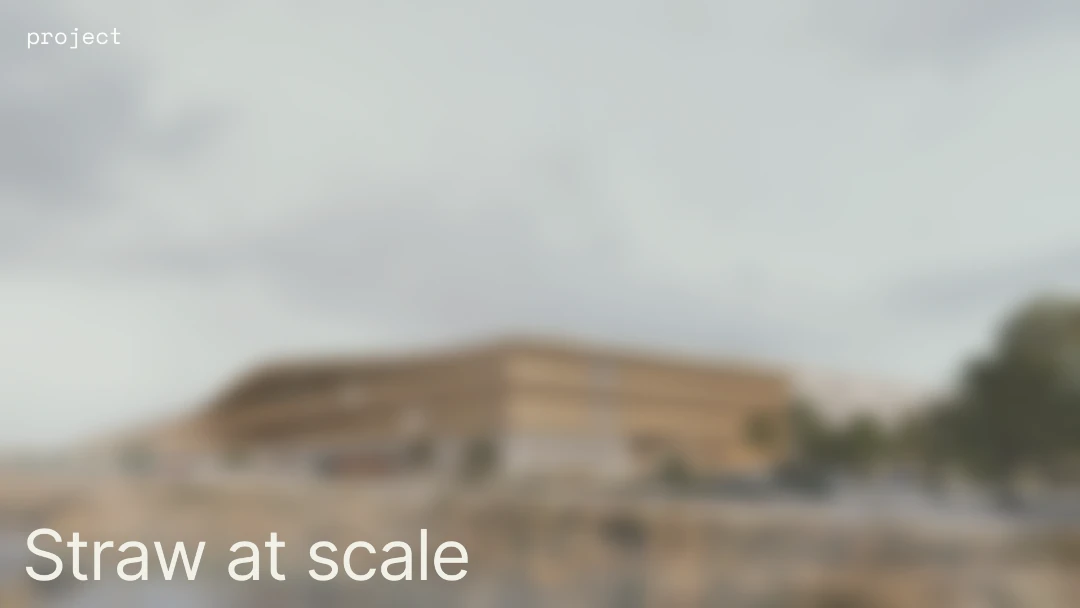
Bio
Maximilian Vomhof is an architect by training with a passion for knowledge sharing and innovation. He has successfully developed prototypes for academic research, constructed buildings in the real world and founded a software start-up in the construction industry.
He is the founder of opensource.construction, a global wide initiative pushing open source and open collaboration across the industry and bridging construction and technology.
What drives you?
When I became an architect, I was really fascinated with the idea of working on our built environment. Building something that people live in and use everyday has such a huge influence on our lives. While I was having some successes as an architect, I started to get a bit frustrated with the cemented status quo that seemed to block many good but different things from happening. It occurred to me that the biggest impact that I can have is actually spreading the word of how changes are possible and energising people on a larger level than just on a project level.
Technology is a key driver for innovation and while I was diving into computation and all the different software tools, I realised that my personality and also my mindset have a bigger impact when I can activate a community rather than solving problems on my own. This larger framework allows me to introduce changes in a more structured way and potentially also be more successful than solely on a project level or just within my personal reach.
What really drives me is when I do successful transformation projects or events, like the hackathon just a couple weeks ago, where we expected 50 people and then 250 people showed up. It was such a great atmosphere…people were freed from their silos and they could collaborate with peers and like-minded people, they could openly exchange thoughts and really make things happen. Witnessing and feeling this energy in the room makes me believe that almost everything is possible. We just need to break a little bit of our siloes, because the people are out there, the knowledge is out there and we just need to bring it together.
What does sustainability mean to you?
To me it really means that things last longer. Obviously sustainability is related to the ecological footprint of our activities. But in my belief, something is also sustainable if people tend to use it for long and if they take care of something.
This mindset can also be translated to digital initiatives. If you build a tool or a process that lasts long and reaches many people, then you enhance the impact and therefore it's also sustainable.
The term digital sustainability is exactly about that. It's a waste of energy and effort if everyone tries to build the same things over and over in parallel and not together. It's much more sustainable if we share resources and make digital transformation happen together.
You have already touched upon the big siloes this industry is facing. What do you think are the main challenges today when we look at sustainability in the built environment?
One key challenge for me really is the very shallow learning curve. If we look at how the industry works, it's really people driven and it's really experience driven. There are so many people that have a say in the planning, organisation, regarding laws and regarding the organisation of the construction site. You have to manage everything and it's really really complicated.
So if you completed a project successfully 1-3 times, you found your way of dealing with this complexity. And that also becomes somewhat of a USP, so you are more reluctant to share and learn from one another. That is very common in the industry, which is a huge blocker.
If we compare this with technology and ICT — change is the status quo, just look at how fast AI and other technology advancements are happening. People are used to sharing and learning from each other, otherwise it would be impossible to keep up with the speed.
In our industry though, I always have this feeling we wait for a new norm that defines what is right and what is wrong… Or people with important and strong opinions want to convince everyone to follow them and because they are the star architect or another important voice, everyone follows. I think this needs to change if you want to accelerate change. We need to learn to build upon the knowledge of others, quite literally.
Knowledge sharing is a type of mindset, which is not familiar to this industry. As somehow who is building a community. How do you convince people?
Firstly, we have outlined the personas that the community is built around.
There are software developers & individuals that really have a passion for change. Then there are organisations that started to build in-house tools and they want to implement open source to reduce maintenance efforts and to be attractive for talents. And then there are other organisations that don't really have tech teams but need to increase the impact of the internal resources to push on digitalisation.
We start with the front runners that everyone knows and when they start to support the open source approach, we create a momentum. It's a bottom-up movement… We collect the people, create and compile the energy and make it visible to others – and then see where it takes us.
What is your opinion on the standardisation of LCA and Material Data?
In general you need to have some sort of standard to be able to automate.
If there are no standards at all, we will never be able to automate. And without automation we will be stuck in a world where we are right now. But again, I don't believe in the golden standard that everyone complies with. So we need to increase literacy to work with different standards and tools to e.g. map data from one source to another to enable automation.
Where should the industry stand by 2030?
The building environment is really slow-moving, and that is actually a good thing… I'm not a fan of changing everything all the time. But taking into account the importance of what we do as architects and engineers and everyone who's involved in shaping the built environment, we should really leverage the collective power that we have and foster a stronger collaboration culture. I really believe technology can provide a great framework for collaboration since it produces concrete results (code) and not only diagrams and whitepapers.
Every building is different, the amount of shadow that you have, the amount of noise that's coming in, the personal style of clients, architects, engineers and everyone that makes it buildable. I am afraid that the more the economic pressure rises, the more standardisation comes into play and then everything becomes the same — same products, same designs… With automation based on data standards, we should be able to create variations with the same efforts like endless repetitions of the same thing. I really hope that design and other software tools will help us to keep variety in our built environment as high as possible. Because that's what makes it livable in my point of view.
Do you have any advice for those who strive to make changes?
Share. Do. Don’t repeat yourself and others. And don't try to change the world by yourself.
I have spent hours and months thinking about solutions that would change the world and then I realised no one cares or knows about it. So I started to really be much more open about all the ideas and what's on my mind. Only through sharing I can see the reaction of people and understand if it's relevant for them or not.
If you want to change infrastructure and fundamental things you need to talk about it and you need to be open for collaboration and accepting other perspectives. And that's something we have to learn. I had to learn it. And that's probably not something that comes natural to many people in this industry.
At the same time, there are so many people out there that are fed up with outdated leadership styles and wrongly understood competition. They are not all loud and visible. To gather and empower these people to make a difference together is what we aim for at opensource.construction.
.png)
.png)
.png)
.png)




























